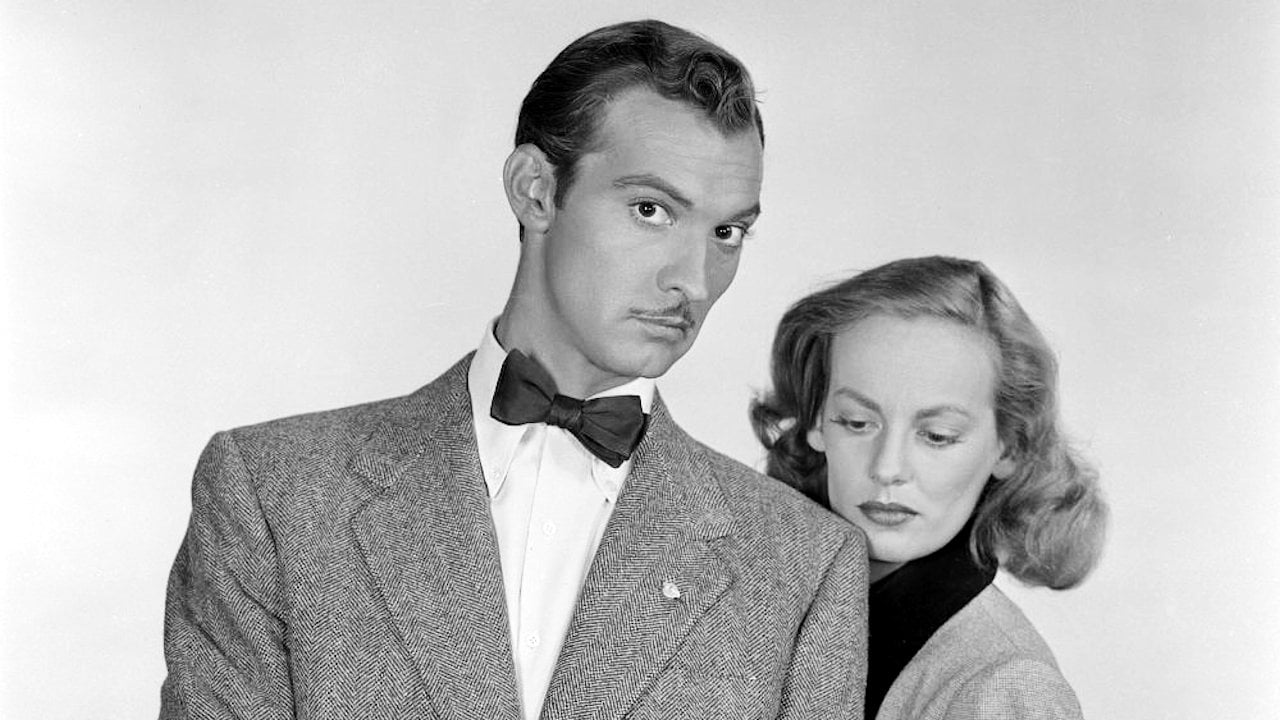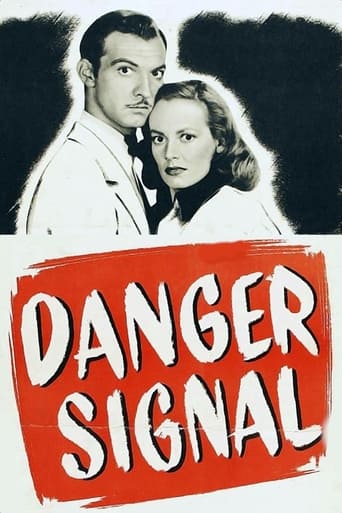AniInterview
Sorry, this movie sucks
Taraparain
Tells a fascinating and unsettling true story, and does so well, without pretending to have all the answers.
Billie Morin
This movie feels like it was made purely to piss off people who want good shows
Cheryl
A clunky actioner with a handful of cool moments.
bob.decker
This isn't a particularly good movie but it's worth watching as a measure of what RKO achieved the same year with "Born to Kill." In both pictures, poorer, older sister falls for a homicidal heel, brings him into the family home only to be dumped in favor of her richer, younger sister. Now her challenge becomes how to protect little sis from the big lug. In this rather sappy G-rated version of the story, most of the noirish elements that made "Born to Kill" great are missing; what makes it watchable is the transformation of Faye Emerson, who, like Tilda Swindon in "The Deep End," gets sexier and sexier the more she's in danger, completing the beauty arc from bespectacled stenographer to leggy siren in under 90 minutes.
Captain_Woodrow_Call
Kudos to the unnamed stuntman who (as the Ronnie Mason character) near the end of the film takes a tough fall over the cliff and lands in the ocean at an angle. I really cringed.Also, like others I found the acting, direction, camera work and overall atmosphere in this film were terrific. Two caveats though:First, as noted, the ending was indeed too pat and a little sugary. Second, Anne went through some some real difficult to believe 180 degree turn arounds in this film . She quickly goes from the family devoted, all-American girl next door--to a seemingly older person who immediately assumes all of the worst about her sister--to (at the end) the innocent high school girl unaffected by what should have been deeply troubling events.
gerdeen-1
This is a must for film noir fans, and it deserves to be better known. If it had more of an A-list cast, it would probably be considered a classic.At the very beginning it resembles Hitchcock's "Shadow of a Doubt." Zachary Scott plays a secretive writer on the run from the law, though for a while it's not clear whether he's really a criminal. Under an assumed name, he charms his way into a household of women.From then on, the plot is original -- consistently clever but never confusing. Male treachery and female jealousy play their parts, and just when one character's motives become clear, you have to start wondering what another character is up to. If you guess how it all turns out, you're a psychic.There is one little detail that's handled sloppily, but it comes early and is excusable. All in all, this is what a mystery should be.
Robert J. Maxwell
In the 19th century there was a whole established school of the psychology of personality called physiognomy. We don't hear much about it anymore. Physiognomy was a method of deducing personality traits from appearance alone. Pointy ears meant a bad temper. Heavy eyelids meant a reserved character. Physical features were to physiognomists what bumps on the head were to phrenologists.Sorry. I only mention this because no physiognomist would believe a word of what Zachary Scott said. The poor guy was tall and had a smooth voice but he resembles some kind of underwater creature with his goggle eyes and that mustached brushed backwards like the whiskers on a carp.He puts that semi-handsome but eely presence to good use in "Danger Signal," a short and well-done B drama in which Scott goes about murdering women for their money and then blowing town.In the opening scene we watch him coolly knotting his tie over the dead body of his latest conquest, removing the golden ring he gave her, and stuffing her money into his suitcase before exiting through the window as the landlady pounds on the locked door of the hotel room. We don't know anything else about him and yet we know all we need to know. He's a murderous, psychopathic bottom feeder.If we had any doubts -- could this obvious set-up be a trap for the viewer? -- they're laid to rest in the next scene. Scott is on a train headed for Los Angeles. A man settles in behind him and throws his jacket over the top of the seat. The lapels flop down into Scott's view. Scott dispassionately notices the "ruptured duck" pin on the lapel, a sign of recent discharge from the armed forces, removes it, and drops it into his own pocket. From now on he will pose as a short story writer, which he is, but will falsely claim that he has just been medically discharged after having been wounded in the South Pacific.His fluidity, his reasoning, his charm work wonders. He seduces Faye Emerson, a pretty but colorless office drone, slips her the golden ring ("from my grandmother") and promises to marry her when his ship comes in. It's not clear exactly what he wants from her since she doesn't seem to have a large stash around.But when Emerson's yummy younger sister, Mona Freeman, moves back into the house and reveals that she's about to inherit a good deal of pelf, he seduces Freeman and begins to ignore Emerson. Now -- he may be a bright guy, in the way that psychopaths are bright, but it's a very bad idea to try dumping a thirtyish spinster with whom you've raised the question of marriage. It leads to Scott's undoing.I missed the last twenty minutes or so, and can't comment on the ending, but what I saw was a respectable black-and-white drama shot on a modest budget, competently direct, and nicely photographed -- good enough, that is to say, that I'd like to watch it again from beginning to end.

